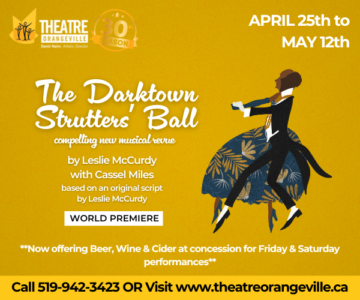Letters – Our readers write: Winter 2013
The Homecoming I am the daughter of Major Clifford McEwen mentioned in (“The Homecoming” fall ’13). I certainly had heard the name “Jimmy Welsh” when I was growing up and…
The Homecoming
I am the daughter of Major Clifford McEwen mentioned in (“The Homecoming” fall ’13). I certainly had heard the name “Jimmy Welsh” when I was growing up and remember going with my parents to visit him in Orangeville when I was a child. I’m sure he was a wonderful man, as was my dad. We should be thankful every day for the sacrifices they and others made for our freedom. By the way, the nurse Dad was courting was my mother. A relative in Ontario spotted this and sent me a copy.
Mary Jane McEwen,
web comment
My Grandfather’s War
My compliments to James Jackson for the article on his grandfather (“My Grandfather’s War,” fall ’13). It makes history come alive when one reads an article such as his. While I never had the opportunity to meet Mr. Jackson, I had the privilege of teaching his youngest son David at Burnhamthorpe P. S. when he was in Grade 8. I was well aware that Mr. Jackson was the driving force behind the building of the Port Credit Legion. Bravo to James for writing this article! Is there a book in the offing on his grandfather’s experiences as a paratrooper in WWII?
Cathy Harper, by email
A Place Like Home
Congratulations to Ken Weber for his excellent description of a relatively little known bit of Canadian history, i.e., the great contribution made by Perkins Bull of Brampton and London, England, his wife, and other supportive Canadians then in London in the depths of that terrible conflict, World War I, in their generous provision of their home and adjacent building for a convalescent hospital for wounded Canadian officers (“A Place Like Home,” fall ’13).
The story is familiar to me since my mother was one of the VADs (Voluntary Aid Detachment) there, and counted Dorothy Bull Symons as one of her closest friends, both living a very full life in the Toronto area into the 1980s.
The casualty rate of our army in France was so high that everyone involved in the Perkins Bull hospital and home was aware that the men at these facilities had about a 50/50 chance that they would not survive the war. One can appreciate how this heightened the emotional impact of the work of these young VADs. My father was twice wounded in France, and while convalescing in London, courted my mother. They were married back in Toronto in 1919.
A final note: When as a teenager I asked my mother what VAD stood for, her reply was “Virgins Almost Desperate.”
Peter Armour, Caledon
Thanks to Ken Weber for his wonderful article “A Place Like Home” in the autumn edition. He captured the essence of the Perkins Bull family and the war effort so well.
We are thrilled to have this story shared widely through the region via the magazine, and greatly appreciate your fine work!
Marty Brent, Acting Manager,
Peel Art Gallery, Museum & Archives (PAMA)
Douglas Grant Pearce
I refer to your in memoriam in the autumn issue. Both my wife Joan and I met Doug several times, as Doug helped Joan to create an ecology journal about our former property in Mono. I’ll miss his science column.
In your third paragraph, you outline his worries about the growing military-industrial complex destroying all growing things. Your words clearly reflect Doug’s passionate concern over this very real threat to our survival.
Like a growing number of people all over the world, I share that deep concern. International power struggles involve warfare of many kinds that tax the minds of expert scholars and journalists.
Thank you for recalling Doug’s heartfelt angst so clearly. It ennobles his memory, and reminds us of his appeal to sober realism.
Fred Brailey, Orangeville
I knew Doug for just a year, September 1963 through September 1964, at Johns Hopkins University in Baltimore.
He was by any measure an exceptional man – humour above all, then his love of motorcycles, then his critical intellect. In that last he was way, way sharper than average.
In that year he became my best friend. But after he graduated from JHU we completely lost touch until recently. I still have his motorcycle – a BSA Gold Star.
Everyone who met Doug wound up close to him – a tribute to his warm, humorous personality. I regret that so much time passed with him north of the border and me south, but at least we were able to trade some emails last year.
I’m going to miss that guy. A lot.
Robin Kinkead, web comment
Editor’s note:
Thank you to the many readers who conveyed their condolences. They were deeply appreciated.
Saving the Birds
As always I enjoy reading In The Hills, and once again you didn’t disappoint me. I found the article “Backyard Birding” by Chris Wedeles (summer ’13) very interesting and informative.
Like most rural or urban families, we have bird feeders and enjoy the various and colourful birds that visit. As a fourth generation farmer living in Mono, we can’t help but appreciate the wildlife that we see and try to co-exist with in unison.
The paragraph on bobolinks and meadowlarks disappointed me in that the finger seemed to be pointed solely at farmers and their hayfields and pastures. Why not mention the golf course owners who could leave some fairways or rough areas for nesting. Or developers who could set aside acreage for bird sanctuaries? Or the people who purchase large acreages and then plant them in trees for forest management tax incentive programs. Or even landowners who have large estate properties with beautifully manicured lawns instead of leaving some area in a natural state?
So my question is, why are farmers, who count on hay for their livestock or to supplement their income, expected to delay their harvest for the sake of these birds? And when will everyone else be asked to change their ways of operating and suffer possible economic loss?
In my opinion, all farmers, no matter what kind of crop they produce, do an excellent job of working alongside and enjoying all types of wildlife. Perhaps if everyone had these financial demands placed on them, they might think twice about what they are asking of, and from, the agricultural community.
At the entrance to my house there is a plaque that reads, “Caution. You are entering the home of an endangered species – A SMALL INDEPENDENT FARMER.”
Ed Shaw, Mono
Old Friends
I was delighted to read Bernadette Hardaker’s article “Friends of Their Youth” (fall ’13). She captured so well the spirit of our era: the rebound from the school fire (it showed the resilience and togetherness of a small town), the pride of a special team accomplishment, and the opportunities available to and taken by the youth of that era. If only it could be made to happen for the youth of the current times.
Thank you to Bernadette for her careful, thoughtful and clever literary piece, and for her resourceful and judicious use of Junior Welch’s infinite knowledge base. His Herculean efforts to bring us together made it all possible.
Bill Waters, Toronto
A Puzzling Solution
In your summer ’13 “Puzzling Conclusion,” the correct answer to “A Conversation in the Gallery” is indeed “Grandma is age 57.” However, the answer you present does not add up to 57: (36+8) – 1961 = 44 – 1961 = –1917 (a negative number). Hence Grandma is –1917 + 1974, or 1917 BC + 1974 AD = a Methuselistic and impossible age of 3,891 years.
Your correct answer should have been written as “1961 – (36+8) = 1917. Hence 1974 – 1917 = 57.
Alan Ruffman, Ferguson’s Cove, N.S.
Editor’s note:
Mr. Ruffman is completely correct.
Joint 20th anniversaries noted at Queen’s Park
Along with Theatre Orangeville and Dufferin County Museum & Archives, In The Hills was honoured when Dufferin-Caledon MPP Sylvia Jones rose in the Ontario Legislature on October 1 to recognize the 20th anniversary of the three organizations. Following is a transcript of her statement:
I’m pleased to rise today to recognize a special 20th anniversary celebration for three organizations in the Headwaters region. The Dufferin County Museum & Archives, Theatre Orangeville and In The Hills magazine all began 20 years ago.
Under the attentive eye of curator Wayne Townsend and archivist Steve Brown, the Dufferin County Museum & Archives showcases our community’s heritage and culture through its artifacts, collections and records. The museum is a hive of activities in all seasons, with events that educate and entertain by sharing the fascinating collections and stories from Dufferin and, in fact, they are highlighted in Queen’s Park this week.
Theatre Orangeville has entertained thousands since it opened its doors. With artistic director David Nairn at the helm, the Theatre Orangeville stage has launched the careers of talented professional actors. Many original Canadian works have premiered on the stage at Orangeville and have gone on to achieve national and international success. I am particularly impressed with Theatre Orangeville’s dedication to the development of its youth programs and its partnership with Community Living Dufferin.
Publisher and editor Signe Ball of In The Hills magazine has been sharing our community’s unique stories for two decades. In The Hills captures the beauty of our community and celebrates our past, present and future. As an award-winning magazine, Signe Ball and the talented writers and photographers are documenting the tales of the Headwaters region.
I congratulate these three organizations on their 20th anniversary.
Online In The Hills
We welcome your comments! For more commentary from our readers, or to add your own thoughts on any of the stories, please add a comment at the bottom of any article. You can also send your letters by e-mail to [email protected] or use our handy submission form. Please include your name, address and contact information. In the Hills reserves the right to edit letters for publication.






